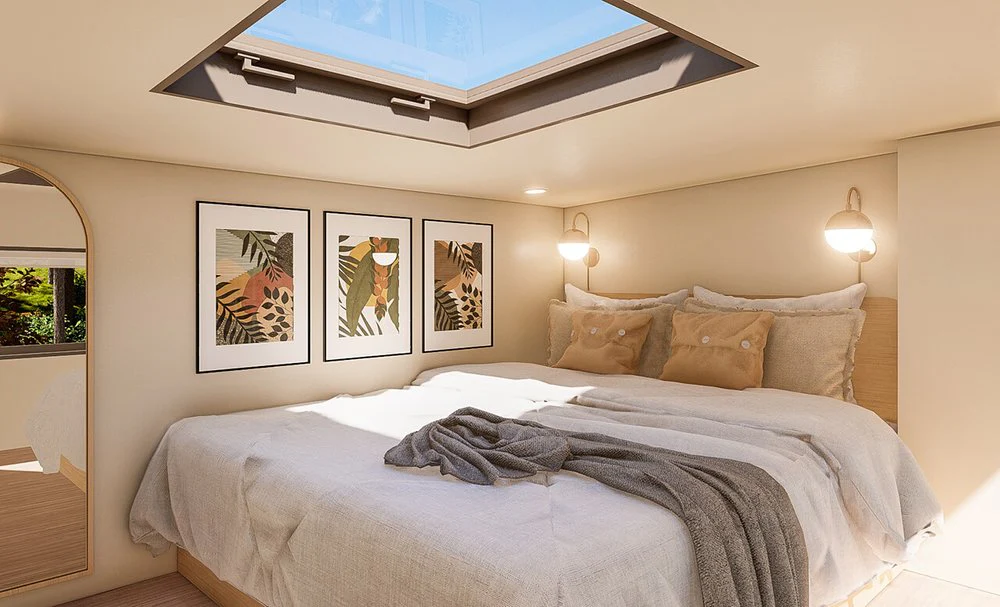Small Moves Are Actually Harder Than Big Ones and Nobody Wants to Admit It

You know what's funny? Everyone thinks small moves are the easy button of relocating. Like, oh, you're only taking a few things? That must be so simple! Yeah, right. Try telling that to anyone who's actually attempted one.
Small moves are basically the advanced calculus of moving. When you're doing a regular move, you just throw everything in boxes and deal with the chaos later. But small moves? You become part therapist, part mathematician, part psychic predicting what future you is going to need.
Here's the thing nobody mentions: you'll spend way more time planning this move than actually doing it. You'll research moving companies for hours, agonize over every single item, and probably change your mind seventeen times about what's coming with you. It's exhausting in ways that loading an entire house somehow isn't.
The moving industry doesn't really know what to do with you either. You're not big enough to be profitable, but you're too complicated to be simple. So you get weird pricing, leftover scheduling slots, and crews who are used to moving entire households, not playing three-dimensional Tetris with your life's greatest hits.
Welcome to Decision Hell
Every single thing you own suddenly needs a full performance review. That sweater you haven't worn in two years? Time for a committee meeting in your head about whether it deserves truck space. The kitchen gadget you bought with good intentions? Now you're doing cost-benefit analysis like you're running a Fortune 500 company.
You'll find yourself having completely ridiculous internal debates. Like, should this cookbook come with me, or would that space be better used for the throw pillows that actually make me happy? You're essentially playing Sophie's Choice with your possessions, except way less dramatic and way more expensive.
Books become the ultimate test of your decision-making abilities. You'll pick up the same novel four different times, convince yourself it's essential, then put it back because maybe those three coffee mugs deserve the space more. Then you'll second-guess the coffee mug decision because what if you need to serve guests? It's a spiral.
The worst part is how every choice reveals something about yourself that you might not want to know. Like how you've been keeping clothes for a version of yourself that doesn't actually exist, or how your kitchen is set up for someone who cooks way more than you actually do.
Moving Company Speed Dating
Finding a company to handle your small move is like trying to find someone who wants to go on a casual date when everyone else is looking for marriage. Most moving companies want the big jobs because that's where the money is, so you end up feeling like you're asking for a favor.
Some companies specialize in small moves and they know it, so they charge accordingly. You'll get quotes that make you wonder if your coffee table is made of gold. Other companies will take your job but treat it like an afterthought, squeezing you in between their real customers.
Then there are the companies that don't really understand what a small move means. You'll explain that you're only shipping a bedroom set and some boxes, and they'll show up with a truck big enough for a family of eight. The crew will look confused, like they're expecting to find the rest of your stuff hiding somewhere.
The scheduling becomes a whole adventure too. Small moves get the leftover time slots that nobody else wanted. Tuesday at 2 PM? Sure, because apparently that's when small move people are supposed to be available. Friday afternoon? Perfect, because who doesn't want to start their weekend wrestling with logistics?
The Hidden Costs Nobody Warns You About
Small moves have this sneaky way of being more expensive per item than big moves, which makes absolutely no sense until you understand how the industry works. You're paying for truck space, labor, and insurance, but spread across fewer items, so everything feels overpriced.
Packing becomes premium service because every box needs to be perfect. When space is limited, you can't afford inefficient packing or wasted room, so everything needs professional-level Tetris skills. Those packing services start looking necessary instead of luxurious.
Insurance calculations get weird when you're only moving valuable stuff. Your small shipment might be worth more per cubic foot than most people's entire households, which affects coverage costs in ways that surprise everyone involved.
Storage fees sneak up on you if your timing isn't perfect. Maybe your new place isn't ready, or the moving dates don't align, and suddenly you're paying daily storage fees for items that cost more to store than they did to buy originally.
.jpg)
The Emotional Archaeology Project
Going through your stuff for a small move is like being your own therapist and archaeologist simultaneously. Every item comes with a story, a memory, or a reason you acquired it in the first place, and now you have to decide if those reasons still matter.
You'll rediscover things you forgot you owned and wonder why you kept them. That box of college textbooks? The exercise equipment you swore you'd use? The kitchen appliances that seemed essential five years ago? Now they all need to justify their existence in court.
The sentimental stuff creates the hardest decisions because you can't measure emotional value in cubic feet. Your grandmother's china set might be impractical, but how do you put a price on family history? Your collection of concert tickets might be worthless to everyone else, but they represent years of great memories.
Some items become symbols of who you used to be versus who you are now. That fancy dress you wore once to a wedding three years ago represents aspirational you, but does current you need it taking up precious space? These decisions force uncomfortable honesty about your actual lifestyle.
Why Small Moves Break Your Brain
The paradox of choice hits harder during small moves because every decision feels both important and arbitrary at the same time. You're making life-changing choices about coffee mugs and agonizing over throw pillows like they're investment decisions.
Your brain isn't designed to make this many comparative value judgments in a short period. Should the blender come instead of the extra blanket? Does the vintage mirror deserve space more than the practical storage bins? After a while, everything starts feeling equally important and completely meaningless.
The planning phase stretches on forever because you keep thinking of better solutions or changing your priorities. Maybe you should ship less and buy more at your destination. Or maybe you should drive instead of shipping. Or maybe you should just burn everything and start over with nothing.
Time pressure makes everything worse because small moves often happen with short notice. Job relocations, lease endings, or life changes don't wait for you to complete your philosophical journey through your possessions, so you're making rushed decisions about items you'll live with for years.
The Skills Nobody Teaches You
Small move success requires abilities that most people never develop because regular moves don't demand them. You need to become a space optimization expert, a value assessment specialist, and a future lifestyle predictor all at once.
Learning to think in three dimensions becomes essential when every cubic foot costs money. You'll measure furniture and mentally arrange truck loads like you're playing the world's most expensive puzzle game. Spatial reasoning skills you didn't know you had suddenly become crucial.
Negotiation becomes important because small moves often involve custom solutions and flexible arrangements. Standard moving packages don't fit unusual situations, so you need to advocate for services that work for your specific needs rather than industry defaults.
Project management skills emerge out of necessity because small moves involve coordinating multiple decisions, timelines, and service providers. You become the CEO of your own relocation project, whether you wanted the responsibility or not.
The experience teaches you things about priority-setting and resource allocation that apply to other areas of life. Successfully completing a small move builds confidence in decision-making and problem-solving abilities you didn't know you needed.
Small moves look simple from the outside, but they're actually masterclasses in decision-making, planning, and letting go. They force you to confront your relationship with possessions, your ability to predict your future needs, and your tolerance for complicated logistics. The people who do them successfully develop skills that serve them well beyond just moving day. You're not just relocating stuff, you're learning to make hard choices efficiently and live with the consequences confidently.







.jpg)

